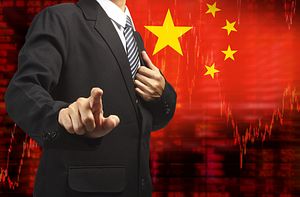As the date for the Permanent Court of Arbitration’s release of its ruling in Philippines v. China nears, Asia’s attention is focused on how the ruling will affect China’s claims and behaviors in the South China Sea. It is safe to say that the ruling will have a big impact on China’s strategic behavior in Asia, as well as the United States’ role in Asia (not to mention other claimant states’ positions and likely actions).
Although it is correct to focus on the likely strategic consequences of the ruling, we should keep in mind that there is another battle that has been ongoing for quite some time: the struggle over discursive power and the narrative with regard to the South China Sea. This is so because the South China Sea is not only strategically important for China, the United States, and other claimant states; it is also significant in terms of who controls the global discourse on international law and global order.
So far China has been in the defense when it comes to international law as many international analysts believe that its non-participation in the arbitration case hurts Beijing’s international image very badly. The U.S. and its allies can easily attack China for demonstrating a lack of respect for international law, even though the U.S. itself has not ratified the UN Convention on the Law of the Sea, despite strong domestic support.
Of course, whether China’s non-participation and non-compliance with the arbitration ruling even constitute real violations of international law is debatable. There is evidence to support either position. The United States and its allies seek to paint a picture of China being the regional bully and an irresponsible power whereas China seeks to portray the United States as the ultimate hypocrite with ulterior intentions in the South China Sea. If this is a battle of narratives, then there is no clear winner, as both China and the United States find support for their positions in their traditional camps (China among developing countries and the United States among developed states).
Narrative is about who controls the power to define a problem and to offer solutions. It is a kind of soft power that can sometimes best military power in conflict resolution. China has been a weak player in soft power games for a long time; but, in recent years, Beijing has been catching up very quickly, thanks to the growing power of its think tanks.
The rapid rise of Chinese think tanks has been a relatively new phenomenon since 2013. Popping up like mushrooms, Chinese think tanks are gaining international influence steadily, particularly in issue areas like the South China Sea disputes. It used to be the case that foreign think tanks would open branches in China, such as the Brookings-Tsinghua Center in Beijing and the Carnegie-Tsinghua Center for Global Policy. Both are operated by major U.S. think tanks and both are playing a positive role in deepening U.S.-China mutual understanding. Feeling the inadequacy to directly influence U.S. policy opinions, China has recently invested to set up research centers in the United States. For example, the newly launched Institute for China-America Studies in Washington, DC, aims to “bring together Chinese and American academic scholars as well as policy practitioners… to provide a window into their respective worldviews.”
And this is only the beginning of a new trend. Chinese think tanks are beginning to bring their workshops and conferences directly to Washington, hoping to communicate face-to-face with U.S. scholars and policymakers. For instance, another influential think tank in China, the Chongyang Institute for Financial Studies at Renmin Univeristy, will co-organize a conference on the South China Sea with the Carnegie Endowment for International Peace in DC on July 5, led by senior diplomats like Dai Bingguo (former state councilor) and John Negroponte (former deputy secretary of state). What this and similar meetings will produce remains to be seen, but the important point is that both China and the United States are actively communicating with each other — a crucial point that sometimes gets ignored by hotheads in both countries.
Long gone are the days when China only listens quietly to Western powers about how the world should operate. As China’s power continues to rise, it was inevitable that it would seek a chair at the table of global rule- and norm-making. Certainly, there is still a long way to go before China can reap the fruits of real discursive power, but we can already see the result of its efforts in the South China Sea. It is China’s long-term strategy have some say over global narratives, beyond its economic power and military power. Perhaps we should indeed let “one hundred flowers bloom” when it comes to global governance, because healthy competition would only make the world work better.

































